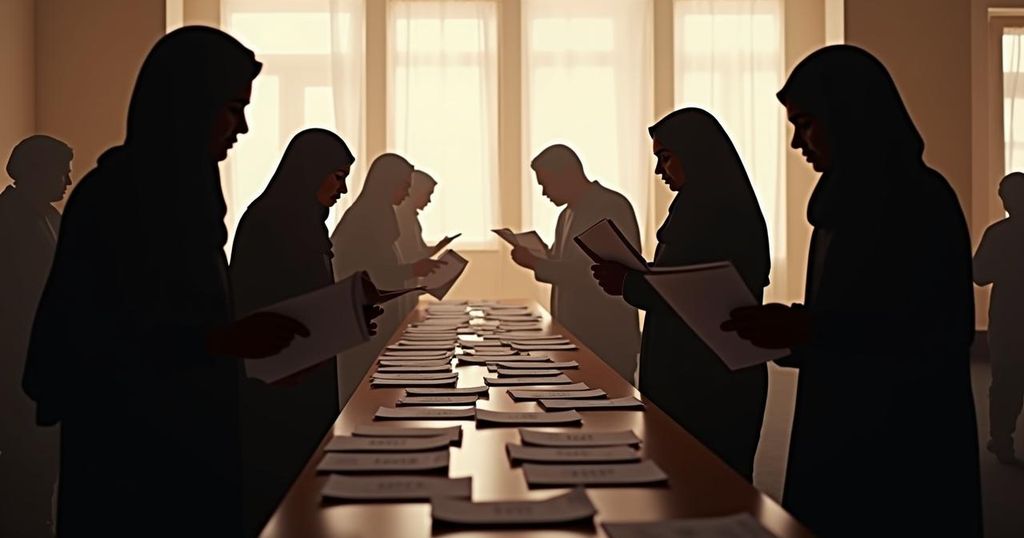Kais Saied Poised for Victory in Tunisia’s Presidential Election Amid Low Turnout
Kais Saied is expected to win Tunisia’s presidential election with 89.2 percent of the votes, amidst low voter turnout of less than 30 percent. This election highlights voter apathy and the criticism of Saied’s consolidation of power, amid significant economic challenges faced by the nation.
Tunisian President Kais Saied is projected to secure a significant victory in the presidential election, garnering approximately 89.2 percent of the votes as indicated by an exit poll released on state television. This election result would further solidify Saied’s authority, following his consolidation of power in 2021. However, official results are anticipated to be disclosed on Monday evening. The election was marked by considerable voter apathy, with less than 30 percent of the electorate participating, representing a substantial decrease in turnout compared to the 49 percent seen in the initial round of the 2019 election. Saied faced opposition from two candidates: Ayachi Zammel, a businessman currently imprisoned, and Zouhair Maghzaoui, a leftist who was once a supporter of the President. Saied, a former law professor, ascended to the presidency by tapping into public dissatisfaction with the political class following the Arab Spring in 2011. Critics of Saied characterized the election as a sham, calling for a boycott that resonated among the opposition. The number of ballots cast before polling stations closed totaled approximately 2.7 million, representing just 27.7 percent of registered voters. Despite the noise of various candidates expressing a desire to run against Saied, only three managed to gain approval from the election commission, which is solely appointed by the President. Saied’s tenure has been overshadowed by economic challenges, including soaring public debt which has risen to over 80 percent of the national income, a steep increase from less than 40 percent in 2010. Further exacerbating these issues has been a current account deficit that has reached 15 percent of GDP as global inflation and the ongoing Russia-Ukraine conflict have considerably amplified the prices of essential imports. Kais Saied has notably adopted a more autocratic stance since his election in 2019, dissolving parliament in 2021 and governing by decree—a move described by opposition figures as a coup. He has asserted he will not relinquish power to those he deems “non-patriots.” While submitting his candidacy for reelection, he claimed there were no constraints on potential rivals, labeling any claims to the contrary as delusional. He also emphasized the importance of independence from foreign interference in domestic matters.
The political climate in Tunisia has been tumultuous since the Arab Spring revolution in 2011. President Kais Saied came to power in 2019 amid widespread dissatisfaction with the existing political structures and leaders. His governance has been marked by controversial reforms that include suspending parliament and rewriting the constitution, moves that critics argue reflect an increasingly autocratic style. The economy has faced prolonged challenges, worsened by rising public debt and current account deficits, placing additional strain on the populace. Low voter turnout in the latest election underscores public disillusionment and raises questions regarding the legitimacy of Saied’s potential reelection.
In conclusion, Kais Saied is set to claim a significant electoral victory in Tunisia, with exit polls projecting him to receive over 89 percent of the vote amid a troubling voter turnout of less than 30 percent. This pattern of apathy reflects a deep-seated discontent with the political process and suggests a populace disengaged from the electoral system. Saied’s increasing grip on power, perceived as autocratic by his opponents, alongside the ongoing economic turmoil, paints a complex picture of Tunisia’s political landscape post-Arab Spring.
Original Source: www.middleeasteye.net




Post Comment